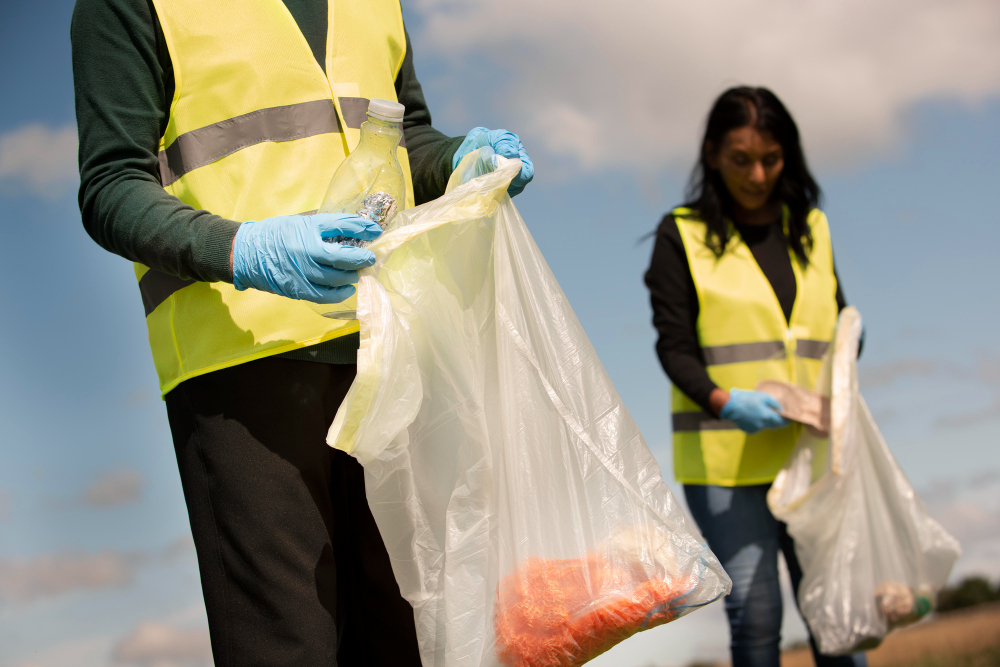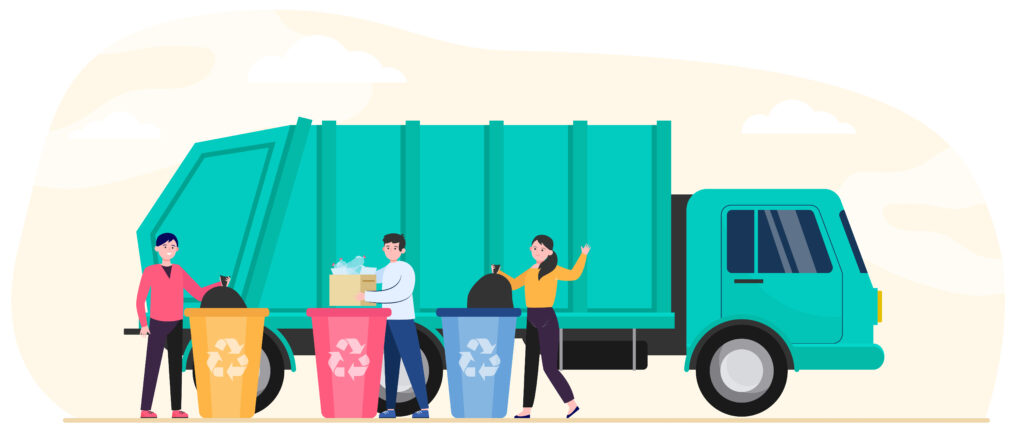The waste management industry in Nigeria has experienced significant growth over the past decade due to rapid urbanization and increased environmental awareness. This sector presents a vital opportunity to address the country’s waste challenges while creating profitable business ventures. Understanding the local waste types, such as solid, liquid, and hazardous waste, and how they are typically managed, will help set the foundation for your business.
Start a Waste Management Business in Nigeria
Starting a waste management business in Nigeria offers lucrative potential due to the increasing waste production linked to the country’s population growth and industrial activities. There is a substantial demand for waste collection, recycling, and disposal services. This business also aligns with Nigeria’s push toward sustainable development and green initiatives, making it a socially responsible venture. By entering this industry, you can contribute to environmental conservation and public health improvement while building a sustainable business.
Essential Steps on How to Start a Waste Management Business
Starting a waste management business involves a series of well-structured steps:
- Market Research: Conduct in-depth market research to identify gaps in current waste management services, target customer segments, and understand competitors.
- Business Plan: Develop a comprehensive business plan that outlines your business model, revenue streams, initial investments, and growth projections.
- Choose Your Niche: Decide whether you want to focus on waste collection, recycling, waste processing, or hazardous waste disposal.
- Secure Funding: Evaluate your funding options, such as personal savings, business loans, or investor support.

Key Requirements for Starting a Waste Management Business in Nigeria
Understanding the essential requirements for starting a waste management business in Nigeria is crucial. These requirements include:
- Business Registration: Register your company with the Corporate Affairs Commission (CAC).
- Environmental Permits: Obtain necessary permits from environmental agencies like the National Environmental Standards and Regulations Enforcement Agency (NESREA).
- Equipment Procurement: Source reliable waste collection trucks, bins, and safety equipment.
For more information on business registration with CAC, visit Corporate Affairs Commission.
Licensing and Regulatory Compliance: How to Navigate Nigerian Laws
Compliance with Nigerian laws is crucial for running a legitimate and successful waste management business. This involves:
- Adhering to NESREA Regulations: Ensure that your business complies with NESREA standards to avoid penalties.
- Environmental Impact Assessment (EIA): Conduct an EIA report if your operations may have significant environmental effects.
Learn more about NESREA regulations at NESREA Official Website
Developing a Business Plan
A robust business plan is a road map for your business’s success. It should include:
- Executive Summary: A brief overview of your business.
- Operational Plan: Details on daily operations, logistics, and management structure.
- Financial Projections: A forecast of your income, expenses, and profit margins.
Funding Options for Starting a Waste Management Business in Nigeria
Funding your business can be challenging, but there are various ways to finance your waste management startup:
- Government Grants and Loans: Explore programs from Nigerian environmental and business development agencies.
- Microfinance Banks: Consider microfinance institutions that offer SME loans.
- Private Investors: Pitch your business plan to private investors who are interested in green businesses.
Check out SME loan programs from Bank of Industry (BOI).
Leveraging Business Management Software to simplify Operations
Implementing business management software like Otawise can optimize operations, from scheduling waste collection to tracking fleet logistics. This software helps reduce manual errors, improve communication, and enhance customer service. For example, using Otawise can help manage client interactions and billing seamlessly.
Find more about CRM solutions at Business Management Software
Challenges and Solutions When Starting a Waste Management Business in Nigeria
Some common challenges include inadequate funding, regulatory red tape, and logistical difficulties. Solutions to these challenges involve:
- Building Strategic Partnerships: Collaborate with local government bodies and NGOs for additional support.
- Innovative Waste Solutions: Implement recycling and upcycling strategies to minimize operational costs.
- Continuous Staff Training: Ensure your workforce is trained on safety protocols and new waste management techniques.

Tips for Long-Term Success in the Waste Management Industry
To achieve sustained growth, focus on:
- Customer Relationships: Maintain a positive relationship with clients through transparent communication.
- Sustainability Practices: Adopt environmentally friendly practices that align with global trends.
- Market Adaptation: Stay updated with the latest industry technologies and trends to remain competitive.
Conclusion: Making Your Waste Management Business Thrive in Nigeria
With the right planning, resource management, and technology, starting and growing a waste management business in Nigeria can be both impactful and profitable. By adhering to regulatory standards, leveraging business management software(Otawise), and implementing sustainable practices, your business can contribute meaningfully to Nigeria’s environmental solutions.
RELATED READ: 6 Best Workflow Management Software for Nigerians.
RELATED READ: Top 3 Document Management Tools for Nigerian Businesses

